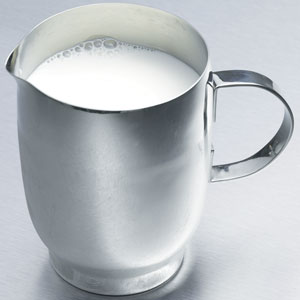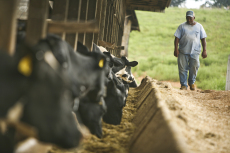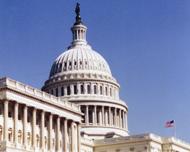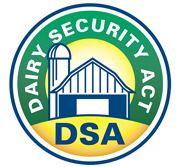It’s been four years since the National Milk Producers Federation (NMPF) formed a strategic planning task force to identify the economic challenges affecting farmers, and formulate ways the industry could realistically work to address those challenges. It’s been a long road, but we’re now on the last portion of that journey.
Farmers in 2009 were confronting the twin troubles of low milk prices, driven by the Great Recession, and high input costs, due to increased competition for corn beyond just other livestock sectors. Between 2007 and 2009, America’s dairy farmers collectively lost $20 billion in net worth. For most of calendar year 2009, farmers lost money on every gallon of milk that left that farm.
Since that time, our organization worked across all of agriculture, and throughout the dairy industry, to come up with an alternative to the safety net programs that existed then – and that still exist today. These programs didn’t really help farmers then, nor are they effective in 2013. As a result, one of the first things that NMPF’s task force did was to advocate for the removal of the Dairy Product Price Support and MILC programs, along with the Dairy Export Incentive Program. Processors have long advocated for the elimination of them, and our organization took the lead in advocating that change in Congress.
In their place, NMPF developed a margin insurance-based approach to help farmers deal with extraordinary bouts of volatility, of both milk prices and feed costs. This new philosophy – a shift from targeting milk prices, to insuring margins – remains a dramatic pivot away from the programs of the 20th century, when the U.S. dairy sector was mostly a closed market, and the cost of milk production was far less.
In order to make margin insurance economically effective, NMPF’s initial proposal two years ago called for a mandatory market stabilization element to temporarily reduce production on every dairy farm when margins were compressed. This component was intended to keep farm-level margins from flat-lining for months at a time, as they did in 2009. It was also a way to help reduce the cost to the government of the insurance premiums. But due to concerns raised by processors and some producers, it became clear that a mandatory system of supply management was not going to be acceptable. So we compromised, by making the entire endeavor voluntary, when the Dairy Security Act (DSA) was introduced as legislation in Congress two years ago.
Since that time, we have worked tirelessly to build support for the measure, and to explain why the dual approach of margin insurance and market stabilization will produce the best bang for the buck – not just for farmers, but for taxpayers as well. Those who voluntarily opt to use this benefit must help share in its cost. It’s become clear from the third-party assessments performed on the DSA that the alternative supported by some processors – margin insurance alone – is very costly, since it lacks the disciplinary element that will trim milk production just enough to restore margins to a point where insurance payouts are no longer required. Absent that restraint, we’ll likely see a repeat of 2009 at some point in the near future. In fact, the Midwestern economists’ analysis of the DSA indicates that a prolonged period of low margins is six times more likely without market stabilization.
This raises the prospect of a return to another difficult time: not to 2009, but to the early 1980s. Those who’ve been in the industry the past three decades remember when Congress adopted a measure in the late 1970s to help farmers, in the form of a huge hike in the price support program. Ratcheted up to unsustainably generous levels, the program generated so much milk that the industry, USDA and Congress spent most of the following decade mopping up the mess.
It’s precisely this type of scenario that could be repeated if a margin insurance program gets instituted without the cost controls necessary to keep a lid on production. Our concern is that if the Goodlatte-Scott approach is somehow adopted, it will be the first and last time Congress does so. The resulting budgetary impact will be so enormous that after 2013, it will never be part of the farm bill again, at least not at the same level of margin protection. And thus, we’ll end up with the 21st century equivalent of the price support program: a safety net that has been so attenuated that it has no protective value to farmers.
At every step in this four-year evolution, we’ve listened, compromised and balanced competing interests. But this process is nearing its conclusion. The Dairy Security Act was approved by the House and Senate Agriculture Committees this spring, just as it was last year. Twice now, the House committee has rejected the Goodlatte-Scott bill. The DSA faces opposition in the full House, but a desperate campaign to strip out market stabilization is only going to further poison the well without changing the ultimate outcome. It’s time for processors to end the divisiveness around the compromise that is the DSA, and to move the industry forward.
 In celebration of June Dairy Month, NMPF’s efforts to revitalize the REAL® Seal are taking a big leap forward this month. A new campaign is being launched that allows consumers to learn more about the benefits of real, American-made dairy products and foods made with them, using a new Facebook page, blogger outreach, and digital advertising.
In celebration of June Dairy Month, NMPF’s efforts to revitalize the REAL® Seal are taking a big leap forward this month. A new campaign is being launched that allows consumers to learn more about the benefits of real, American-made dairy products and foods made with them, using a new Facebook page, blogger outreach, and digital advertising.
 ARLINGTON, VA – Two national dairy organizations are urging Nevada Governor Brian Sandoval to veto legislation that would allow the sales of raw milk directly to consumers, arguing that the food safety risks of the measure represent too great a gamble with the public’s health.
ARLINGTON, VA – Two national dairy organizations are urging Nevada Governor Brian Sandoval to veto legislation that would allow the sales of raw milk directly to consumers, arguing that the food safety risks of the measure represent too great a gamble with the public’s health. ARLINGTON, VA – A
ARLINGTON, VA – A  From Jerry Kozak, President and CEO, NMPF:
From Jerry Kozak, President and CEO, NMPF:




